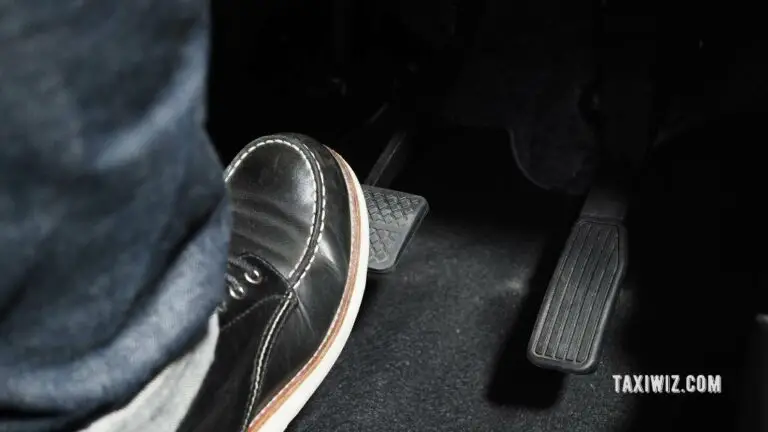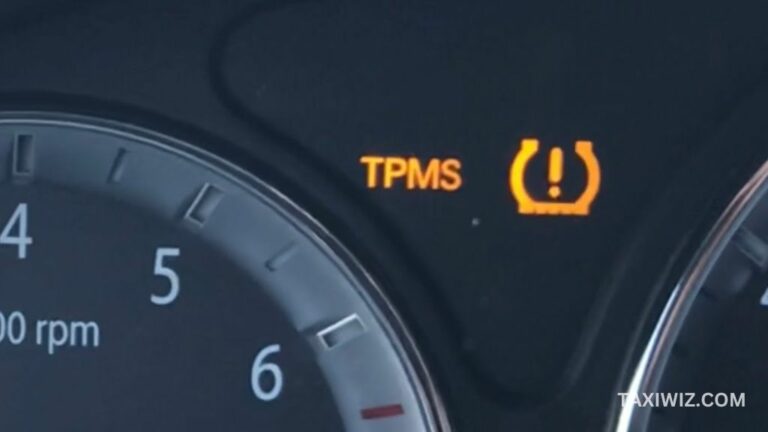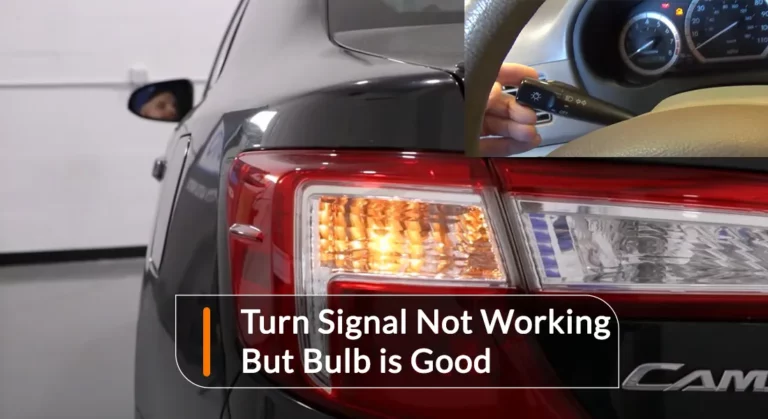Why Is Coolant Leaking from Thermostat Housing? (Answer Explained)
Porsche is a luxury sports car brand, while Mini Coopers are premium small cars. Oppositely, Chevrolet Cruze and Ford Focus are both compact cars. But do you know what these four have in common?
It is witnessing coolant leaking from thermostat housing at some point. You’re probably wondering, why is coolant leaking from my thermostat housing. Can bad thermostat cause coolant leak, or by something else?
Generally, it happens when there’s an issue with your vehicle thermostat, such as it got stuck, damaged housing, worn-out seals, and others.
Today’s article will explain all causes or reasons behind coolant leaks from a car’s thermostat housing and how to fix it.
So, keep reading_
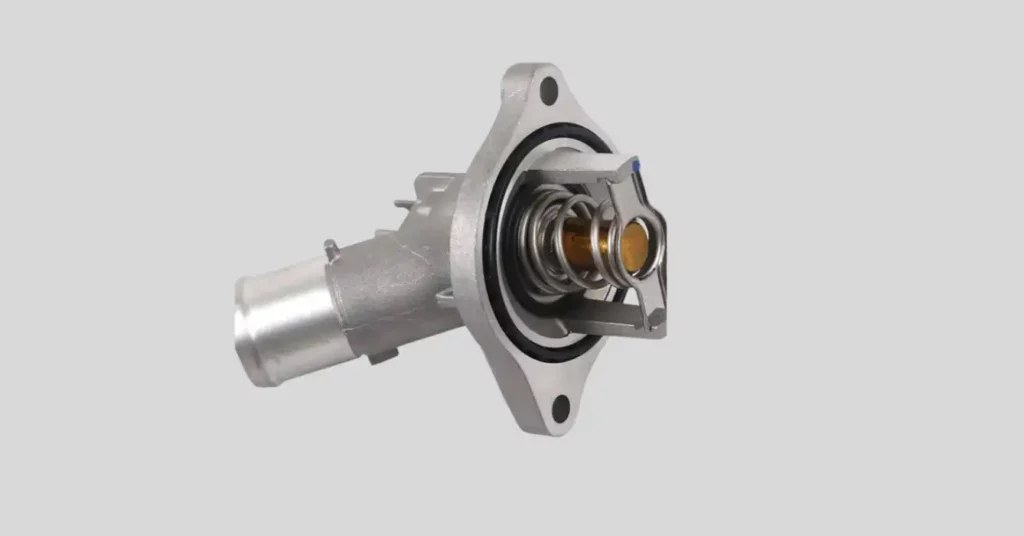
Why Is My Porsche Coolant Leaking From Thermostat Housing?
Porsche is a luxury sports car brand, but it does not mean they are without flaws. Coolant leaks around the thermostat housing, and if not addressed on time, it may severely affect Porsche’s overall performance and durability.
Here are the four possible causes behind the thermostat housing leaking on your Porsche models:
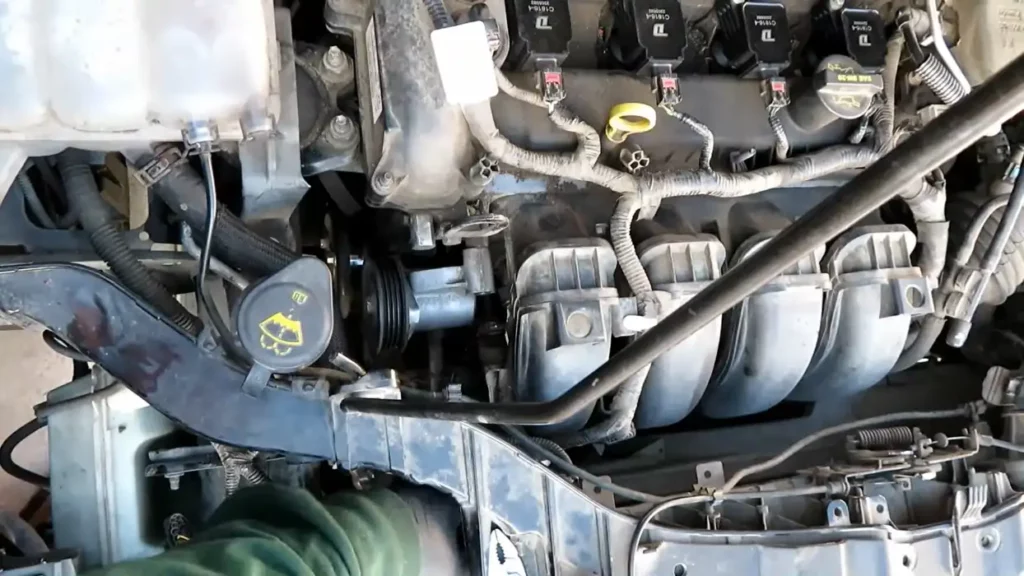
1. Broken Damaged Water Outlet Gasket:
It is known as either the thermostat or water outlet gasket. This gasket seals the thermostat housing to the engine block might degrade over time or because of overexposure to the weather.
This thermostat gasket can also damage due to wear and tear. When this happens, coolant can leak out of the housing.
2. Corroded Thermostat Housing:
Due to constant exposure to coolant and other chemicals, the thermostat housing on your Porsche may corrode over time.
This corrosion can cause small cracks to grow in the housing, ultimately leading to coolant leaks.
3. Loose or Damaged Upper Radiator Hose:
The Upper radiator hose connects the thermostat housing to the radiator. Over time this radiator hose may come loose from where it is mounted.
Or it may become broken or entirely worn. This can cause coolant to seep from the housing.
4. Bad or Faulty Thermostat:
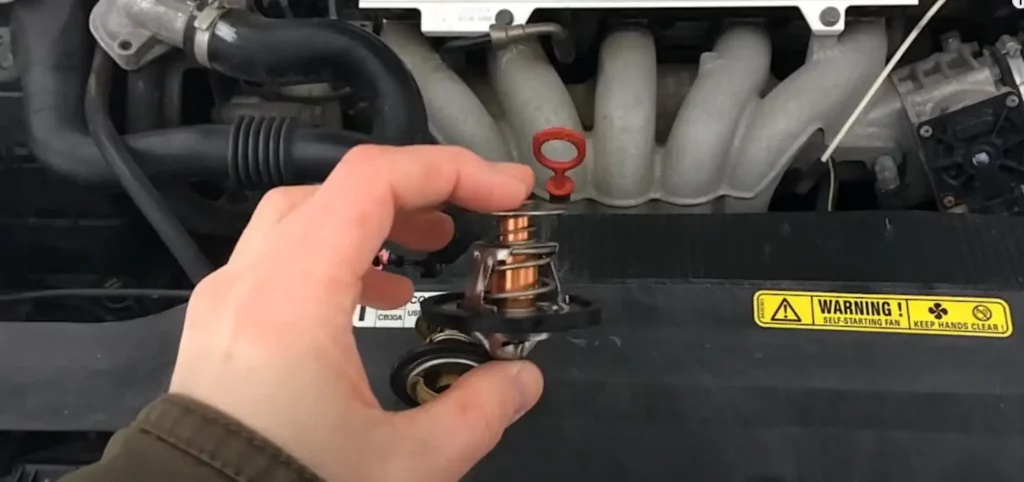
Most Porsche thermostat housings are built of plastic or metal, but they are not unbreakable and can deteriorate with time.
The cracked or worn housing will prevent the engine from regulating its temperature properly. This can cause the engine to overheat as well as lead to coolant leaks from the housing.
The housing may crack or get damaged due to the fault made by the mechanic during the last replacement.
For instance, if they have applied too much torque to the housing bolt, coolant leaking from thermostat housing bolt is unavoidable.
Why Is My Ford Focus Coolant Leaking From Thermostat Housing?
There can be multiple causes that may have led your Ford thermostat to have the coolant leaking issue.
It should be noted that the thermostat housing leak is not just widespread in Ford Focus only but also in other Ford models, such as the C-Max, Fusion, Mondeo, and Lincoln MKZ.
Here are the five possible reasons behind the thermostat housing leaking on your Ford models:
- A broken or worn Thermostat Gasket may fail to keep the housing sealed to the engine block, which can cause coolant to leak out.
- Overheating your car engine can cause the engine coolant to boil and pour out of the thermostat housing.
- If the upper radiator hose that connects your car’s thermostat housing to the engine comes loose or has a wear and tear issue, it can also force coolant to leak out of your car’s T-housing.
- If the T-housing in your Ford model is composed of aluminum, it may corrode and leak over time due to heat and coolant exposure.
- Cracked or bad T-Housing itself can cause coolant to leak out as well.
Why Is My Mini Cooper Coolant Leaking From Thermostat Housing?
Here are the six potential reasons behind the thermostat housing leaking on your Mini Coopers models:
- A damaged or cracked thermostat housing,
- A failed or worn thermostat gasket,
- A bad radiator cap or loose hose connection,
- A dirty or blocked water pump,
- A faulty expansion tank, or
- Too much built-up pressure in the vehicle’s cooling system can also lead your vehicle to experience coolant leaking from the T housing.
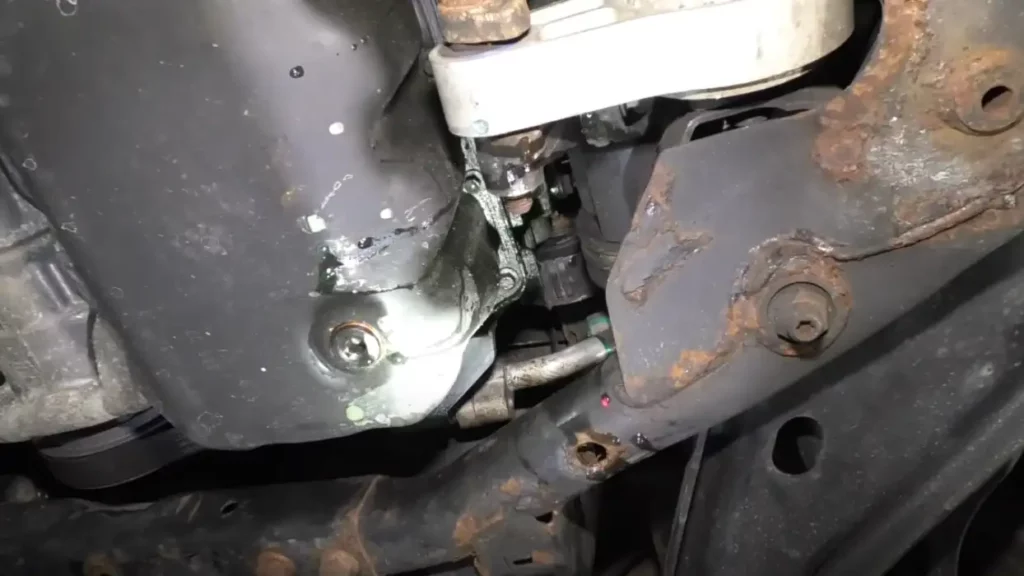
Why Is My Cruize Coolant Leaking From Thermostat Housing?
One of the causes of coolant leaking from the thermostat housing on a Chevrolet Cruze is the plastic thermostat housing, which is known to crack and warp with time.
Here are the other four common causes why your Cruize coolant leaking from thermostat housing:
- A weakened thermostat gasket that fails to seal the thermostat to the engine block might cause coolant to escape.
- The bolts that secure the T-housing to the engine block can become loose over time and it will cause the engine coolant to leak out from there.
- If your engine constantly overheats, it can also cause the thermostat housing to crack or warp, leading to coolant leaks.
- In some cases, the coolant surge tank can also leak coolant, which can be mistaken for a thermostat housing leak.
Read Also: Why is My Car Leaking Water Underneath? [Reason + Fixes]
How to Stop Thermostat Housing from Leaking Coolant?
Whether you own a Porsche, Mini Coopers, Ford, or Chevy model, the best approach to repair or prevent coolant leakage from the thermostat housing is to have your car serviced by a skilled mechanic.
But if you still want you can try some quick fixing techniques to stop the leaking by yourself:
Step-1:
Turn your engine off and let it cool off first. Then, get access to your thermostat housing assembly (It is often found near the top of the engine and is linked to the upper radiator hose. You can confirm it by reading your vehicle’s user manual) and check for any visible cracks or damage to the housing. If it is damaged, the housing will need to be replaced (that will require technical expertise).
Step-2:
Next, examine the condition of the radiator cap, gasket, and hose. If any of those parts look bad, replace them.
Tighten any loose bolts that secure the housing to the engine block. Also, clean the area around the thermostat housing and make sure it is free of debris and coolant.
Note: If you have to install a new gasket, apply a small amount of gasket sealant to the new gasket before placing it on the thermostat housing.
Step-3:
If you’ve already replaced the gasket and still see coolant leaking from the bolt, follow this quick DIY heck to stop your T-housing leaking issue with a sanding block only:
Refill the coolant system with the appropriate coolant and check for leaks.
You should also check the water pump and expansion tank. Replace them, if necessary.
But remember these two replacements require proper technical skills and it’s wise to hire a professional if you aren’t sure about your skill.
Step-4:
If the aforementioned measures do not address the leaking issue, it is strongly advised that you take your car to a dealership or repair service.
- If you own a Porsche, contact dartauto.com or santacruzeuropeanauto.com for the best servicing from the Pro mechanics.
- If you own a Mini Cooper, contact mikejohnsimports.com or dellsservicecenter.com & get proper professional assistance.
- If you own a Chevy Cruze or Ford, contact your local Chevy or Ford service center or yourmechanic.com & get professional service.
How Much Does Thermostat Housing Leak Repair Cost?
Here are some possible estimates of thermostat housing leak repair:
| Brand or Series | Estimated Repair Cost | Estimated Labor Cost |
| Porsche | ($70 – $520) (included the estimated labor cost) | |
| Ford Focus | ($286 – $327) | ($151 – $191) |
| Ford C-Max | ($580 – $621) | ($158 – $200) |
| Ford Fusion | ($237 – $283) | ($171 – $216) |
| Mini Cooper | ($452 – $522) | ($266 – $335) |
| Chevrolet Cruze | ($238 – $261) | ($87 – $110) |
Related Post: Does the Radiator of a Car Pull Coolant from the Reservoir?
Frequently Asked Questions [FAQs]
Can a leaking thermostat housing cause overheating?
Yes, it can be one of the reasons. But you should run a proper diagnosis to confirm it.
Can bad thermostat cause coolant leak?
Yes, that’s one of the major reasons behind engine coolant leaks.
Can I drive with a coolant leak around the thermostat housing?
You can because engine coolant leaking from the T-housing does not pose an imminent threat. It is, however, strongly advised not to do so as soon as you detect it.

